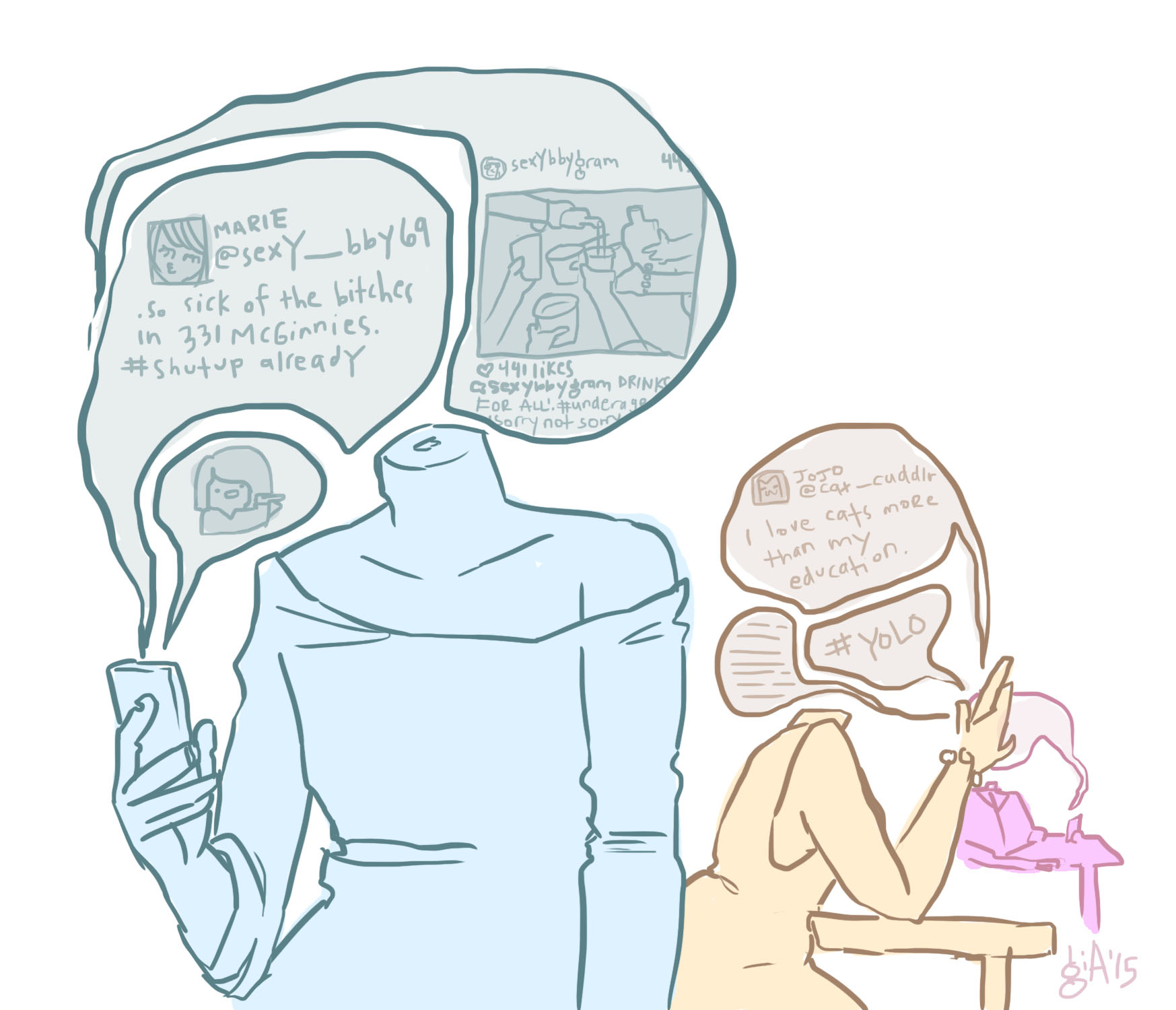
NAOMI LYNCH
Social Media Manager
On March 23, Bloomsburg University’s first baseman Joey Cassleberry was kicked off the team after tweeting some not-so-nice remarks about Mo’ne Davis, the 14-year old Little League prodigy, according to Philly.com.
This is a prime example of the misuse of social media. These gaffes affect athletes and everyday folk, causing them to lose endorsements and lose jobs. People can no longer say, “I was hacked.”
When 3.4 billion people have access to the Internet, the biggest mistake that most people make is not knowing how large social media is.
Fredonia’s Athletic Department noticed this, and on Aug. 31, enlisted the services of Kevin Deshazo, Senior Strategist for Fieldhouse Media, which is the largest social media firm in Oklahoma City, to present to a full house in the Multi-Purpose Room.
“I spend most of my time talking to student athletes, because most of the time, they are going to be the ones in the newspapers,” Deshazo said.
Four ideas sum up Deshazo’s presentation:
Nothing is private.
Snapchat, the popular “disappearing photo” app, recently settled FTC charges on the vanishing messages that — surprise — didn’t really vanish. The images are sent to a folder that the normal user can’t access. This app was created by three self-proclaimed “frat bros” that wanted nude pictures of women, and now these men are 15 million dollars richer.
You are a brand.
Everything you do reflects upon you — even on the Internet. For student athletes, this means representing your team on and off the field. Deshazo displayed tweets from students in the room during his presentation, and besides the obvious shock value, he divulged to the audience that he found all these tweets in 15 minutes with a simple Google search.
“You won’t yell ‘ANAL SEEPAGE’ across campus, but you’d do that to 3.4 billion people on the Internet?” Deshazo asked the stunned audience.
Utilize your settings.
“Do you have privacy online? No. Should you use privacy settings? Yes,” Deshazo said.
Deshazo suggests making your Facebook private and setting your Twitter to be public. As for Instagram, the choice is yours. Treat everything like it is public. Do you want your grandmother to read about how trashed you were last weekend?
Being your BEST
Deshazo presented a four-point game plan for a solid approach to social media called being your BEST:
B: Build your core. What’s your purpose? Choose a few words and revolve around those ideas.
E: Eliminate the noise — post no irrelevant updates that aren’t related to your core. You want to tell a story. Add value!
S: Stay positive. “The Internet isn’t your diary, and it has yet to fix problems by complaining,” Deshazo says. Use the “toyboat” approach — like the tongue twister, slow down and think about what you’re saying before you press send!
T: Think long-term. Out of a tie between two candidates, the one with better social media practices wins.
19-year-old Kathryn Halloran, a junior forward for the women’s basketball team, thought the presentation went well.
“I’m going to stop sending out [silly] tweets and adult-proof my Twitter account,” she said.
Deshazo stressed that everybody has two choices with social media: using it as a toy or using it as a tool. Choose wisely!
